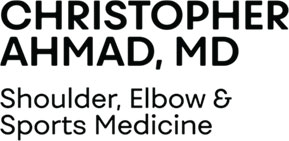Interscalene Nerve Block
WHAT IS AN INTERSCALENE NERVE BLOCK USED FOR?
The interscalene nerve block is an anesthetic used in conjunction with sedation for your surgery. The nerve block heavily numbs the arm and shoulder (similar to how a dentist numbs your mouth) so that shoulder and elbow surgery can be carried out without heavy general anesthesia. Another goal of the nerve block is to provide excellent pain relief for 12-24 hours following surgery.
THE BENEFITS OF AN INTERSCALENE NERVE BLOCK FOR SHOULDER SURGERY ARE:
- Reduced risk of nausea, vomiting and sedation
- May allow you to leave the surgery center or hospital earlier
- It will allow you to tolerate eating and drinking sooner post-surgery
- Excellent pain control
- Lighter sedation or general anesthetic with speedier recovery from the anesthetic
- Less chance of an overnight stay at the hospital
PAIN CONTROL:
- The block usually numbs your entire arm and makes it unusable until the block wears off.
- The nerve block technique used is a single injection that lasts 12‐24 hours. The duration of the numbness can vary and is dependent on the type of local anesthetic used, additives and individual variations.
- Once the numbness starts to wear off, the discomfort from surgery will intensify progressively over the next 1-2 hours. Therefore, we recommend starting oral narcotics (e.g. Vicodin or Percocet) and anti-inflammatory medications (e.g. Ibuprofen or Aleve) as soon as oral medications are tolerated. These medications should be taken on a scheduled basis as soon as you start feeling tingling in your arm or fingers. The tingling sensation means the block is starting to wear off. If you don’t notice the tingling sensation prior to going to bed, it may be recommended to take the prescribed narcotics prior to falling asleep. This will allow for a smooth transition from the nerve block to oral medication based pain relief.
MANAGEMENT OF THE “NUMB ARM”:
- You should have your “numb” arm in an arm sling or immobilizer until normal sensation and motor function returns and/or until your physician instructs you to stop wearing the immobilizer.
- You should take caution to not come in contact with extremely hot or cold items because you will not be able to protect yourself from injuries of extreme temperature.
POSSIBLE SIDE EFFECTS:
This procedure is considered safe, however, with any procedure there can be risks and side effects. Most of the side effects are related to the local anesthetic spreading and numbing the nerves adjacent to the ones that supply the shoulder and arm. Any or all of the following can occur, but all should resolve spontaneously as the effects of the local anesthetic wear off.
- Shortness of breath – The injection in the neck can also numb half of the diaphragm (a muscle used in breathing). Some people can feel slightly short of breath, although in most individuals this does not greatly affect the ability to breathe adequately.
- Blurred vision – Numbing of a nerve traveling to the face can cause a drooping eyelid, change in pupil size, and slightly blurred vision on the side of the block. This is very common and not a problem. Symptoms pass as the block wears off.
- Hoarseness – Due to the nerves supplying the voice box being numbed. This improves as the local anesthetic wears off.
- Difficulty swallowing water – Or sometimes a “lump in the throat” feeling. This is due to the nerves supplying the voice box and throat being numbed. This effect can usually be overcome by “conscious” swallowing and usually it is not a problem.
- Nerve sensitivity – Very rarely, some subtle numbness or tingling in the arm can last more than 24 hours but should fully resolve within 7-10 days. If either weakness or numbness last more than 24-36 hours following your surgery, notify your surgeon.
**Your anesthesiologist will further discuss the nerve block and the options of sedation and general anesthesia the day of the surgery.


